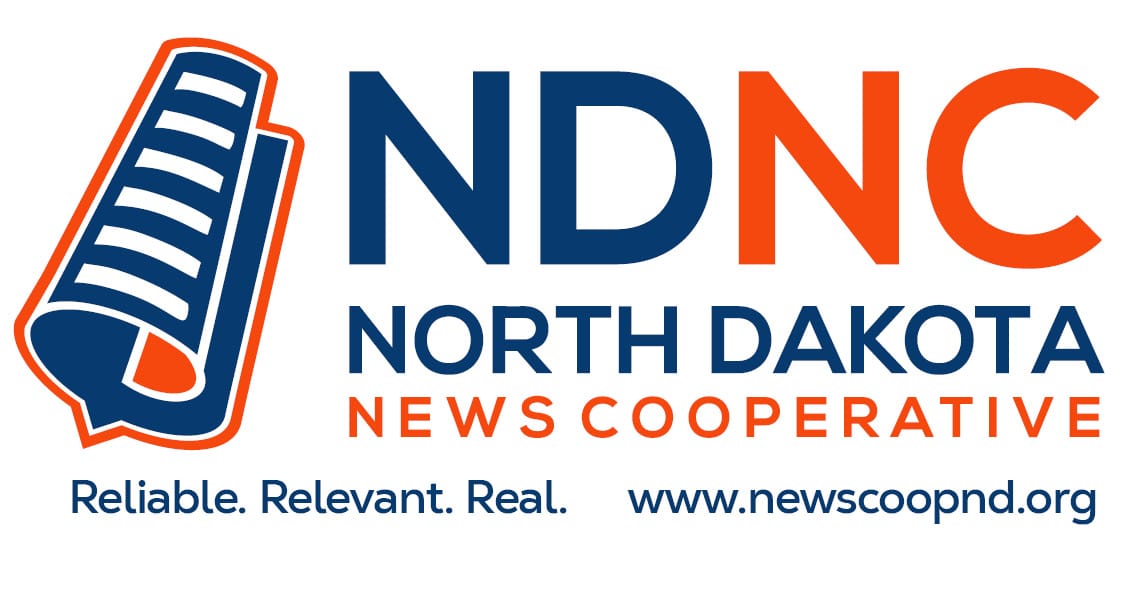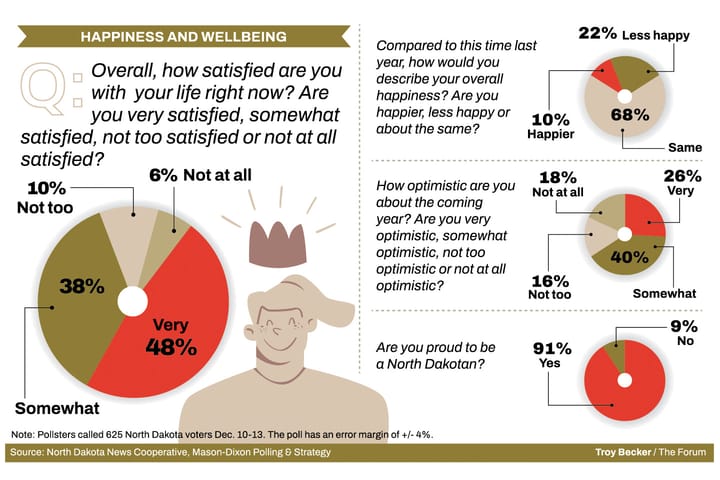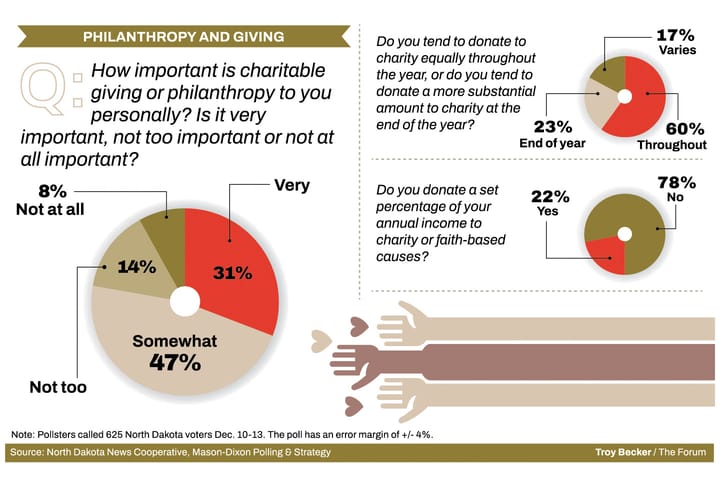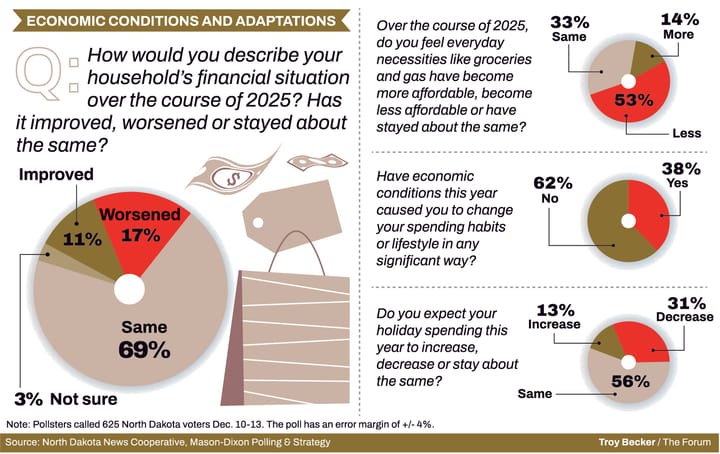Poll: ND voters back tariffs, but mixed on impacts of Trump trade policies
Respondents also back Trump immigration policies
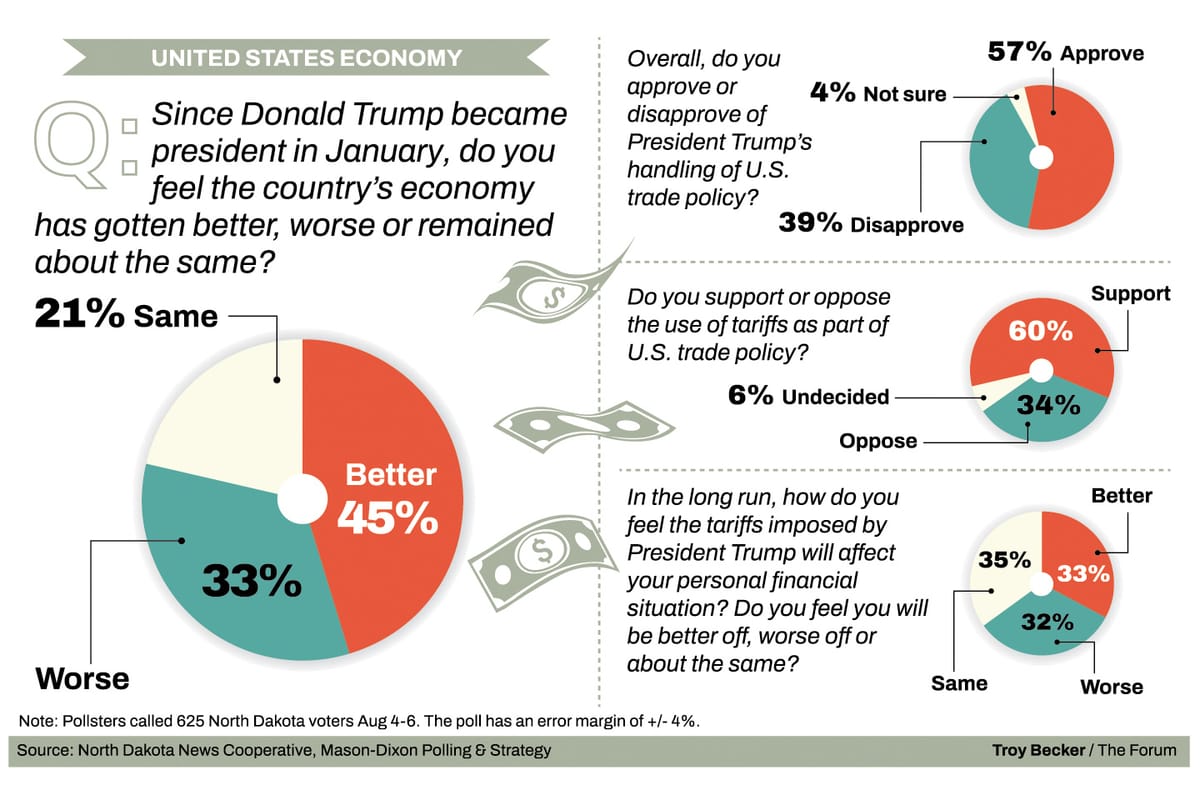
Most North Dakotans support the use of tariffs as part of trade policy but appear mixed on how President Donald Trump is handling trade and whether the impacts of tariffs will hit them personally, results of the latest North Dakota Poll show.
A total of 60% of respondents support the use of tariffs as part of U.S. trade policy, and 34% oppose, with most opposition coming from Democrats and just under half of self-described Independents.
Slightly less approve of the Trump administration’s handling of trade policy, with 57% approving and 39% disapproving, with opposition again coming from Democrats and nearly half of Independents.
A total of 33% of respondents said their own financial situation would be better off because of the Trump trade policies, 32% said they’d be worse off, and another 35% said their situation would be about the same.
Data released by the U.S. Bureau of Labor Statistics on Aug. 12 showed a slight 0.2% rise in the Consumer Price Index in July over the previous month. Other CPI figures excluding food and energy prices rose 0.3%, or 3.1% higher than the past year, signaling that inflationary pressure is growing.
The bureau also released Producer Price Index data on Aug. 14, showing a 0.9% increase over June with the wholesale inflation rate up from 2.4% to 3.3% between June and July, another indication of higher inflation.
“The economy is slowing down and I think we’re going to have slow growth for a while, and I think people are going to see some of the effects of the tariffs maybe coming up more so than they have already,” said John Bitzan, Menard Family Director of the Sheila and Robert Challey Institute for Global Innovation and Growth at North Dakota State University.
Bitzan said the on-again, off-again nature of the Trump administration trade negotiations and tariff policies has businesses in a state of uncertainty, even with recent reprieves of 90 days for further negotiations with China and Mexico.
“That uncertainty makes businesses less willing to invest in capital equipment, but it also makes them less willing to invest in employees and hiring,” Bitzan said.
Arik Spencer, CEO of the Greater North Dakota Chamber of Commerce, said support for tariffs appears to track in general with support for Trump’s trade and other policies.
“In terms of how it's going to impact people, I think the verdict is still out on a lot of that,” Spencer said. “From a business perspective, a variety of inputs have seen impacts but that hasn’t quite trickled down to the consumer.”
Spencer said he felt there was broad support for fair trade, but that business people also want certainty going forward.
“With the volatile scenario we’re in related to tariffs and 90-day extensions, that kind of makes it hard to plan out,” he said. “Everyone supports reindustrializing the United States, but those conversations take a long time, from site selection to where you’re going to make investments.”
Of Trump’s handling of the economy since he took office, 45% said they were better off, 33% worse off, and 21% about the same. Support for Trump’s “Big Beautiful Bill” was also
strong, but with most Democrats and a large segment of Independents dissenting. Overall, 55% of all respondents support and 36% oppose the bill.
Asked if the country was on the right or wrong track, 58% believe it is on the right track and 38% said it was on the wrong track.
Solid support for Trump on immigration
The poll also showed strong support for Trump administration immigration policies, with 65% approving of mass deportations and 32% opposed.
Asked if mass deportations of undocumented immigrants would do significant harm to North Dakota’s agricultural industry, 64% said it would not harm the industry, tracking closely with support for the deportation policies.
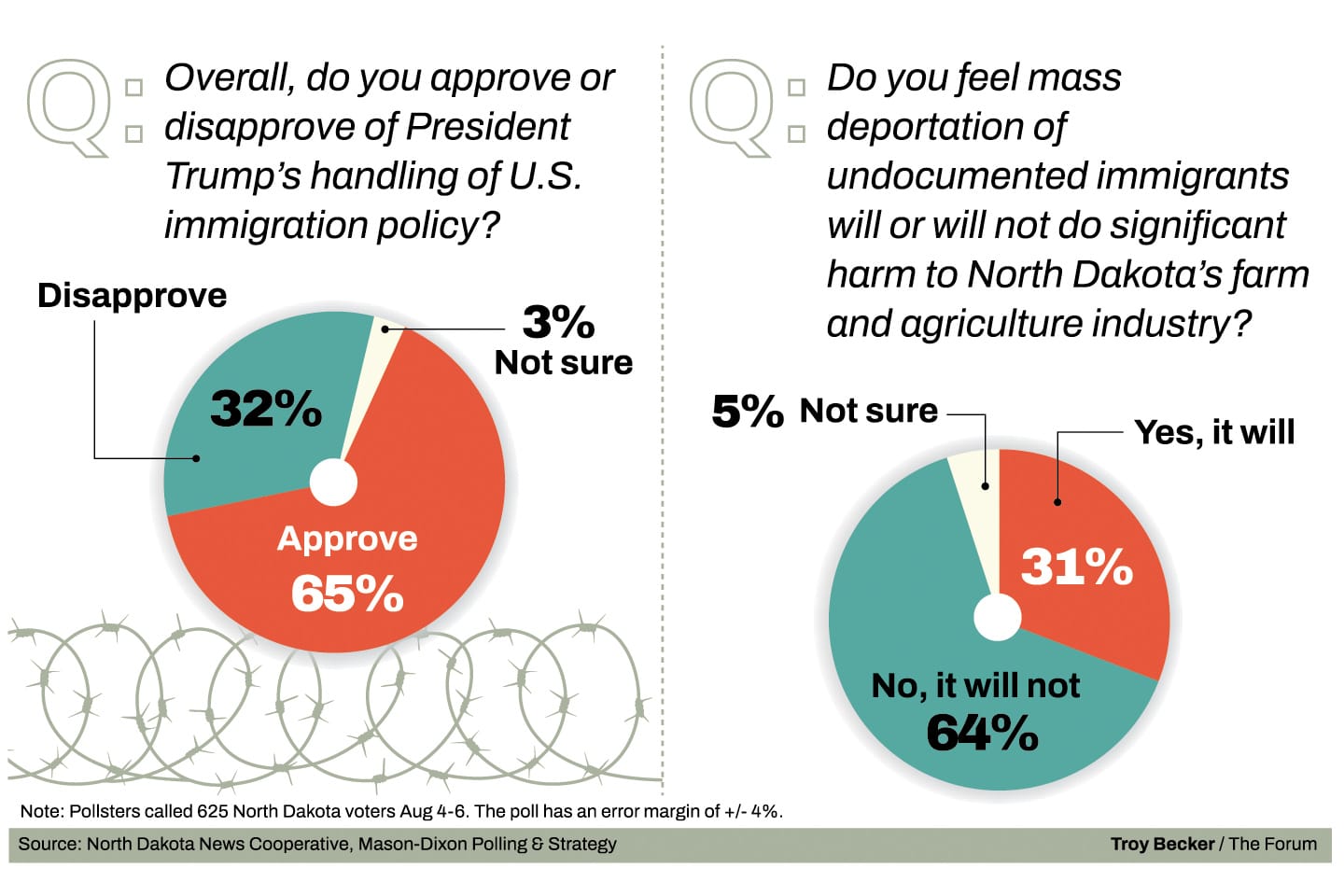
Longer term, however, the U.S. will need to address workforce challenges due to demographic shifts, analysts said.
“While we have to have an immigration policy that respects our borders, we're not really talking about overhauling our immigration system in the US,” Spencer said. “There's not enough babies being born to replace the baby boomers leaving the workforce.”
Bitzan said, like tariffs, the impacts of the current immigration policies would likely be felt down the road.
“We know that we don't have enough workers in our economy to sustain growth, and so we need more immigration, not less immigration, and I think that the effects of that are going to become apparent later as well,” Bitzan said.
Optimism on North Dakota economy
Overall, of the 625 regular voters polled, most are rosy on North Dakota’s economic and overall prospects.
A total of 74% felt the economy in the state was either excellent or good, while only 26% said it was fair or poor.
Those numbers match closely with whether people believe the state is on the right or wrong track, with 72% saying it is on the right track and 24% more negative on the future trajectory.
“I think by and large, people do have confidence in our state economy and the U.S. economy,” Spencer said. “I think there is some concern that as inflation is trickling a little bit higher, the impact that has on our national outlook.”
Most respondents didn’t believe recent geopolitical events in the Middle East related to Israel and Iran would have an impact on North Dakota’s energy industry. A total of 40% said it would likely improve because of those events, with 46% saying it would remain the same.
The North Dakota Poll, initiated by the North Dakota News Cooperative, was conducted by Mason-Dixon Polling & Strategy, Inc. of Jacksonville, Florida. From August 4 through August 6, 2025, a total of 625 adult regular voters were interviewed statewide by phone. The margin of error is no more than + or - 4%, according to the polling firm.
The final story on the latest poll data will look at attitudes toward spending from the Legacy Fund and property taxes.
A total of 155 respondents were in Fargo-Cass County, 155 in eastern North Dakota, 120 in the Bismarck-Mandan region, and another 195 in western North Dakota. Quotas were assigned to reflect voter turnout by county.

The North Dakota News Cooperative is a nonprofit news organization providing reliable and independent reporting on issues and events that impact the lives of North Dakotans. The organization increases the public’s access to quality journalism and advances news literacy across the state. For more information about NDNC or to make a charitable contribution, please visit newscoopnd.org. Send comments, suggestions or tips to michael@newscoopnd.org. Follow us on Twitter: https://twitter.com/NDNewsCoop.
